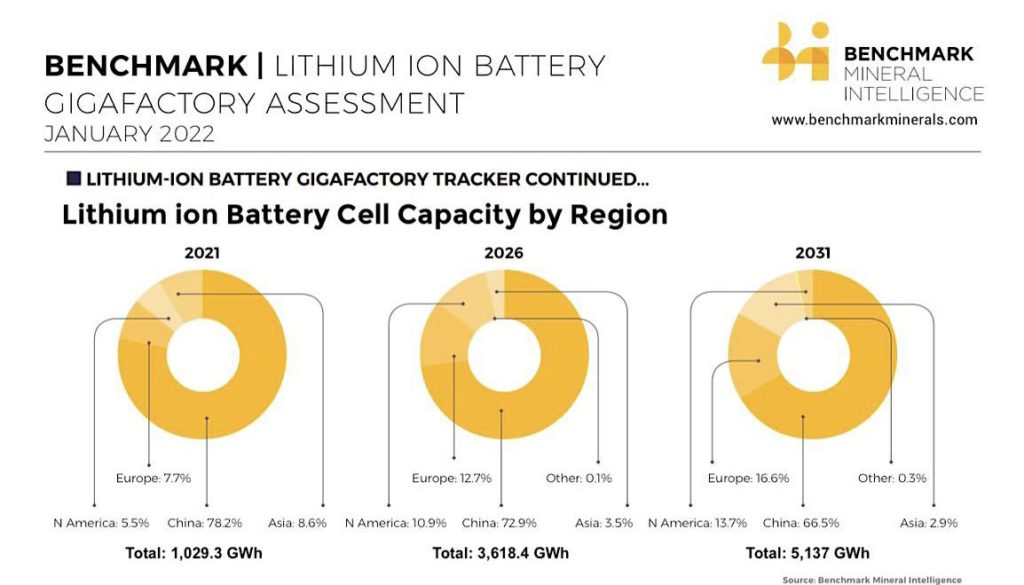The funds will help develop one of the UK’s only large-scale battery factory due to open in 2023, which that will eventually produce enough materials for more than 300,000 EVs a year.
Glencore, which posted its highest-ever profit on Tuesday, has already invested millions in Britishvolt in earlier funding rounds that valued the battery company at more than £740 million ($1bn).
“Our interactions with the capital markets, and customers, show that demand for low-carbon, responsibly-manufactured batteries is rapidly growing day by day,” chief investment officer Kasra Pezeshki said.
Glencore and Britishvolt have been working together since they inked a long-term cobalt supply deal last year, and the mining giant owns an undisclosed stake in the start-up.
Britishvolt said it has signed agreements with four automakers with cumulative battery demand in 2024 and 2025 of 7 gigawatt hours (GWh) for its battery plant in Blyth.
So far, the company has only publicly announced British carmaker Lotus as a customer.
European cars lifeline
The start-up’s £2.6 billion ($3.5bn) battery plant is considered key to the prospects for the UK automotive sector, which is moving away from internal combustion engines towards zero-emissions EVs.
The local industry needs to meet tighter carbon-dioxide emissions targets that take effect next year or face billions of dollars in fines if they exceed them.
Global battery supply is dominated by manufacturers in China, Japan and South Korea, but Europe and the US are racing to catch up.

By recycling batteries, the UK will secure some local supply of lithium and cobalt, but also reduce the amount of the metals the country needs to import to make EVs.
The British government has already backed Britishvolt’s project with £100 million ($135m) from its Automotive Transformation Fund, which aims to prevent the car industry and thousands of jobs moving elsewhere.
The EU Battery Regulation proposes that from 2030, all new batteries must contain 4% nickel, 12% cobalt and 4% lithium, by weight, from recycled materials, with higher targets from 2035.



